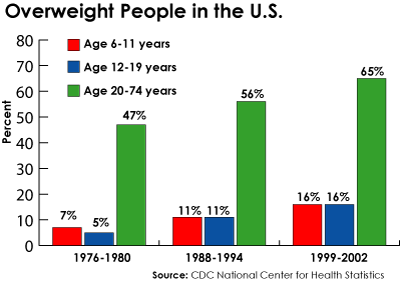Artificial Sweeteners For WEIGHTLOSS and FOR DIABETES.Are They SAFE Enough?!

Artificial Sweeteners:
An Artificial Sweetener is a food additive that provides a sweet taste like that of sugar while containing significantly less food energy. Some sugar substitutes are produced by nature, and others produced synthetically. Those that are not produced by nature are, in general, called artificial sweeteners.
Artificial Sweeteners are high-intensity sweeteners. These are compounds with many times the sweetness of sucrose, common table sugar. As a result, much less sweetener is required and energy contribution is often negligible.
By offering the taste of sweetness without any calories, artificial sweeteners seem like they could be one answer to effective weight loss. The average 12-ounce can of sugar-sweetened soda delivers about 150 calories, almost all of them from sugar. The same amount of diet soda—zero calories. The choice seems like a no-brainer.
Artificial sweeteners are widely used in processed foods, including baked goods, soft drinks, powdered drink mixes, candy, puddings, canned foods, jams and jellies, dairy products, and scores of other foods and beverages.
Why To Use Artificial Sweeteners:

With obesity rates among Americans at an all-time high, many people may think they have to give up sweets in order to lose weight. But there’s good news if you love sweets: Low-calorie sweeteners offer a way to reduce calories in sweet foods and beverages, which may help you lose or maintain your weight. They also offer a way for people with diabetes to decrease their carbohydrate intake.
The American Heart Association (AHA) and American Diabetes Association (ADA) have given a cautious nod to the use of artificial sweeteners in place of sugar to combat obesity, metabolic syndrome, and diabetes, all risk factors for heart disease.
Possible Health Benefits:
One benefit of artificial sweeteners is that they don't contribute to tooth decay and cavities. They may also help with the following:Weight control.
One of the most appealing aspects of artificial sweeteners is that they are non-nutritive — they have virtually no calories. In contrast, each gram of regular table sugar contains 4 calories. A teaspoon of sugar is about 4 grams. For perspective, consider that one 12-ounce can of a sweetened cola contains 10 teaspoons of added sugar, or about 150 calories. If you're trying to lose weight or prevent weight gain, products sweetened with artificial sweeteners, rather than with higher calorie table sugar, may be an attractive option. On the other hand, some research has suggested that consuming artificial sweeteners may be associated with increased weight, but the cause is not yet known.Diabetes.
Artificial sweeteners may be a good alternative to sugar if you have diabetes. Unlike sugar, artificial sweeteners generally don't raise blood sugar levels because they are not carbohydrates. But because of concerns about how sugar substitutes are labeled and categorized, always check with your doctor or dietitian about using any sugar substitutes if you have diabetes.Functioning Of Artificial Sweeteners:
The degree of sweetness we taste depends on how well the receptors in our tongue interact with the molecules. The stronger the interaction, the sweeter we perceive the taste.
Taste scientists at a company called Senomyx have identified the taste bud receptor that is responsible for finding what we consider "sweet." Sugar and artificial sweeteners bind to this receptor, creating the sweet sensation that we get when we eat them. The receptors are found on the surfaces of cells all over the tongue and inside the mouth. They send messages to the brain to tell it that we're eating something sweet.
Artificial sweeteners are compounds that have been found to elicit the same (or a similar) "sweet" flavor we get from sugars. Some are low-calorie because they are so much sweeter than sugar that only a tiny amount is needed. For instance Sucralose is approximately 600 times as sweet as sugar.
On the other hand most of Artificial Sweeteners are NOT Digested by the body. They simply pass through our digestive system without being absorbed.
These all functions contributes to LOW CALORIES.
Different Types Of Artificial Sweeteners:
There are Five Artificial Sweeteners that have been approved for use in U.S. The others are:
Sucralose
Aspartame
Neotame
Saccharin
Acesulfame potassium
Are Artificial Sweeteners Safe?:
The topic of sugar substitutes can be confusing. One problem is that the terminology is often open to interpretation. For instance, some manufacturers call their sweeteners "natural" even though they're processed or refined, as is the case with stevia(Plant) preparations. And some artificial sweeteners are derived from naturally occurring substances — sucralose comes from sugar.
Most of the Artificial Sweeteners have always been considered to be biologically inert, meaning it passes through the human body untouched. However, a recent article posted to the Journal of Toxicology and Environmental Health noted that some of the ingested sweetener is metabolized, meaning that it is not entirely inert.
Artificial sweeteners have been scrutinized intensely for decades. Critics of artificial sweeteners say that they cause a variety of health problems, including cancer. That's largely because of studies dating to the 1970s that linked saccharin to bladder cancer in laboratory rats. Because of those studies, saccharin once carried a warning label that it may be hazardous to your health.
But according to the National Cancer Institute and other health agencies, there's no sound scientific evidence that any of the artificial sweeteners approved for use in the U.S. cause cancer or other serious health problems. And numerous research studies confirm that artificial sweeteners are generally safe in limited quantities, even for pregnant women. As a result of the newer studies, the warning label for saccharin was dropped.
In addition to cancer, thousands of Web sites and forums have information on other dangers and side effects associated with aspartame, sucralose, and other artificial sweeteners. Multiple sclerosis, Alzheimer's disease, brain tumors, nervous disorders and other health problems have been blamed on them. Aspartame is getting most of the criticism, but sucralose is also under scrutiny.
There are other interactions that medical researchers are currently investigating; for instance, ingested sucralose has been linked to altered intestinal microbe levels in mice; and it is believed that cooking with sucralose may produce toxic compounds called chloropropanols.
Human and rodent studies also indicate that sucralose might alter glucose and insulin levels in the blood. More research is needed to confirm these findings, but this challenges the idea that the compound is inert.
Recent research, published in the International Journal of Occupational and Environmental Health, suggests that Splenda may play a role in certain cancers.
The researchers fed mice various levels of sucralose and noted any effects the sweetener had across their lifespan.
Overall, the team noted an increase in malignant cancers as their intake of sucralose increased. Specifically, the researchers found a higher incidence of leukemia in male mice associated with sucralose intake.
The teams' findings go against the known data on sucralose up until this point; they note that, due to the popularity of Splenda, follow-up studies should be seen as urgent. Human studies will be necessary to establish the connection, if any, between cancer and sucralose.
Largely due to this study, the Center for Science in the Public Interest (CSPI) recently downgraded the safety rating of sucralose for a second time, from "caution" to "avoid." However, Michael F. Jacobsen, the president of CSPI noted that:
"The risk posed by over-consumption of sugar and high-fructose corn syrup, particularly from soda and other sugar-sweetened beverages, of diabetes, heart disease, and obesity, far outweighs the cancer risk posed by sucralose and most other artificial sweeteners."
Artificial sweeteners are regulated by the Food and Drug Administration (FDA) as food additives. They must be reviewed and approved by the FDA before being made available for sale.
In some cases, the FDA declares a substance "generally recognized as safe" (GRAS). These GRAS substances, including highly refined stevia preparations, are deemed by qualified professionals based on scientific data as being safe for their intended use, or they have such a lengthy history of common use in food that they're considered generally safe and don't require FDA approval before sale.
The FDA has also established an acceptable daily intake (ADI) for each artificial sweetener. This is the maximum amount considered safe to consume each day over the course of your lifetime. ADIs are intended to be about 100 times less than the smallest amount that might cause health concerns.
What’s your definition of safe?
Whether non-nutritive sweeteners are safe depends on your definition of safe. Studies leading to FDA approval have ruled out cancer risk, for the most part. However, those studies were done using far smaller amounts of diet soda than the 24 ounces a day consumed by many people who drink diet soda. We really don’t know what effect large amounts of these chemicals will have over many years.
And there are other health concerns beside cancer. In the Multiethnic Study of Atherosclerosis, daily consumption of diet drinks was associated with a 36% greater risk for metabolic syndrome and a 67% increased risk for type 2 diabetes. Aren’t these diseases that artificial sweeteners may help prevent in the first place?
MOST OF THE INFORMATION IN THIS BLOG IS COLLECTED FROM FOLLOWING ARTICLES AND WEBSITES:
https://www.health.harvard.edu/blog/artificial-sweeteners-sugar-free-but-at-what-cost-201207165030
https://www.mayoclinic.org/healthy-lifestyle/nutrition-and-healthy-eating/in-depth/artificial-sweeteners/art-20046936
https://www.medicalnewstoday.com/articles/262475.php
https://science.howstuffworks.com/innovation/edible-innovations/artificial-sweetener3.htm
https://en.wikipedia.org/wiki/Sugar_substitute
useful information thanks